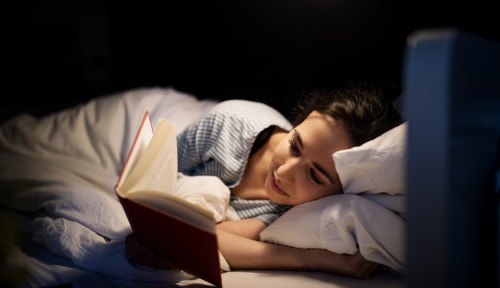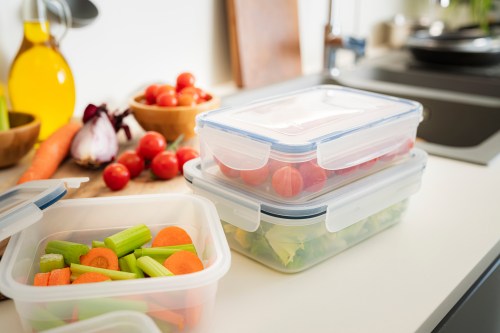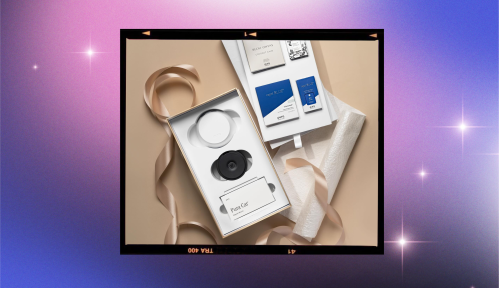Our editors independently select these products. Making a purchase through our links may earn Well+Good a commission
It’s likely that you’ve gone to bed angry before at some point in your life—whether as a result of an argument, a work-related issue, a frustration regarding current events, or otherwise. But because going to sleep angry can compromise your quality of sleep, which can, in turn, impact your mood and productivity the next day, actively working to end your days on a high note can be a great help to your well-being. In fact, happiness experts contend that having a bedtime routine that focuses on going to sleep in a good mood can help you snag higher-quality sleep and, thus, wake up on the right side of the bed.
Experts in This Article
happiness expert and New York Times bestselling author of The Happiness Project
cognitive scientist, professor of psychology at Yale University, and host of the podcast The Happiness Lab
positive psychology expert
Happiness coach, author of One Happy Thought at a Time: 30 Days to a Happier You
“For a lot of people—and certainly me as well—it’s hard to wind down and make sure that you get in bed when you should,” says happiness expert Gretchen Rubin, author of The Happiness Project. Setting and sticking to a pre-bedtime routine is linked to better sleep hygiene, and by ensuring that we go to bed when we should, we’re also putting a concerted effort toward getting enough sleep—which is key for our health and longevity.
As far as specifics for what constitutes an effective pre-bedtime routine, Laurie Santos, PhD, happiness expert and professor of psychology at Yale University, suggests keeping them short and sweet. Doing so sets you up for success to stick to the routine long-term.
Ahead, find eight bedtime routine ideas that happiness experts swear by to ensure that they end days on a high note.
8 bedtime routine tips from happiness experts for always going to sleep in a good mood
1. Set a bedtime and stick to it
Rubin says that setting a realistic bedtime can help you end your days on a happier note because you’ll be proud of yourself for sticking to your bedtime and you’ll feel better equipped to tackle the next day when you know you got a good night’s sleep.
If you struggle to get into bed with enough time to give you the recommended amount of sleep, it could be helpful to set an alarm on your phone for bedtime the same way you would do it for when you’re waking up, says Rubin.
2. Journal
When done consistently, journaling can function as a gift to your mental health—and experts agree that it’s a great way to end days on a high note, because you leave nagging stressors in the journal rather than on your mind, which can help you feel ready to go to sleep.
“One thing I have is a one-sentence journal, and a lot of people like that because it’s very manageable. [It’s just] one sentence, but a lot of times in one sentence, you can write down enough [so] that you feel like you’ve transferred your thoughts onto the page and gain [more] perspective,” says Rubin.
If you find that you’re struggling to stay asleep and are waking up hours before your alarm goes off, keeping a journal on your nightstand can also be quite helpful, says positive-psychology expert and celebrity happiness coach Robert Mack. “You can write down little things that occur to you in the middle of the night, and that way you can actually let them off your mind, and you can get back to sleep.”
3. Express gratitude
Happiness coach Rochelle Gapere suggests trying a pre-bedtime gratitude practice called “three good things,” during which she notes three good things that happened to her that day. “As I’m doing my three-good-things exercise, I am consciously going through my day, finding things to be grateful for, or finding good things,” says Gapere, who adds that the exercise helps her put things into perspective.
The three good things can be as simple as being grateful that you complimented someone or that you were able to solve a problem on that day (read: they don’t have to be anything grand). “By the end of the day, when I’m winding down, I replay my day and I think about my three good things…For me, that helps me zoom in on the [fact] that I am blessed [and] that I’m grateful,” she says.
4. Get ready for bed well before bedtime
Rubin says that starting her pre-bedtime routine long before she plans to turn off the lights has been extremely helpful to her sleep hygiene and has helped her simply “roll into bed” when she’s tired.
“I was finding that I would be so tired that I would [stay] up because I couldn’t face taking out my contacts and washing my face and changing my clothes,” she says.
5. Shut down all electronic devices
“I have a little plastic bed that I put my phone on so that my phone can go to bed right before I go to bed,” says Dr. Santos. “This allows me to have some separation between the end of the workday and the beginning of going to bed. It also allows me to protect myself from the temptation of grabbing my phone…if I happen to wake up in the middle of the night.”
Similarly, Mack says that he turns off his electronic devices a few hours before bedtime to avoid the stimulation of blue light. Additionally, staying away from technology can help you be more at ease when you go to bed because you don’t “clutter your mind with more stuff at night,” he adds.
6. Visualize what they want the next day to look like
This can help you end days on a high note because you get a sense of agency over what it is that you’re looking forward to and how you’re going to plan your day, Gapere says.
“When you go to bed with a sense of calm, you also have a sense of control, so you’re not going to sleep feeling overwhelmed with everything that you have to do,” says Gapere. “[This works] even if it’s just a quick run-through of what the following day may look like and what tasks you’re going to attack the next day,” she adds.
7. Go for a short walk
Mack says this works for him because he tends to have a lot of energy right before bed. If you also tend to feel more awake as you’re supposed to be hitting the hay, going on walks may help that energy dissipate, which, in turn, can facilitate the winding-down process.
Mack adds that taking a walk helps him to stand in the present moment a lot more effectively, which also helps reduce the nervous energy we might experience before bedtime. (But, he caveats, this bedtime ritual isn’t necessarily effective for everyone. If you don’t have excess energy near bedtime, save your walks for daytime.)
8. Set time aside for social connection with your sleeping partner, if you have one
Dr. Santos says the last step in her pre-bedtime routine is making time for social connection with her husband.
“We’ll talk about our day, have some jokes, and maybe even share some goofy animal videos,” says Dr. Santos. “It’s really a nice [way] to connect with my husband, and feel like I go to bed on a high note of feeling really connected with him,” Dr. Santos adds.
Oh hi! You look like someone who loves free workouts, discounts for cutting-edge wellness brands, and exclusive Well+Good content. Sign up for Well+, our online community of wellness insiders, and unlock your rewards instantly.
Sign Up for Our Daily Newsletter
Get all the latest in wellness, trends, food, fitness, beauty, and more delivered right to your inbox.
Got it, you've been added to our email list.











